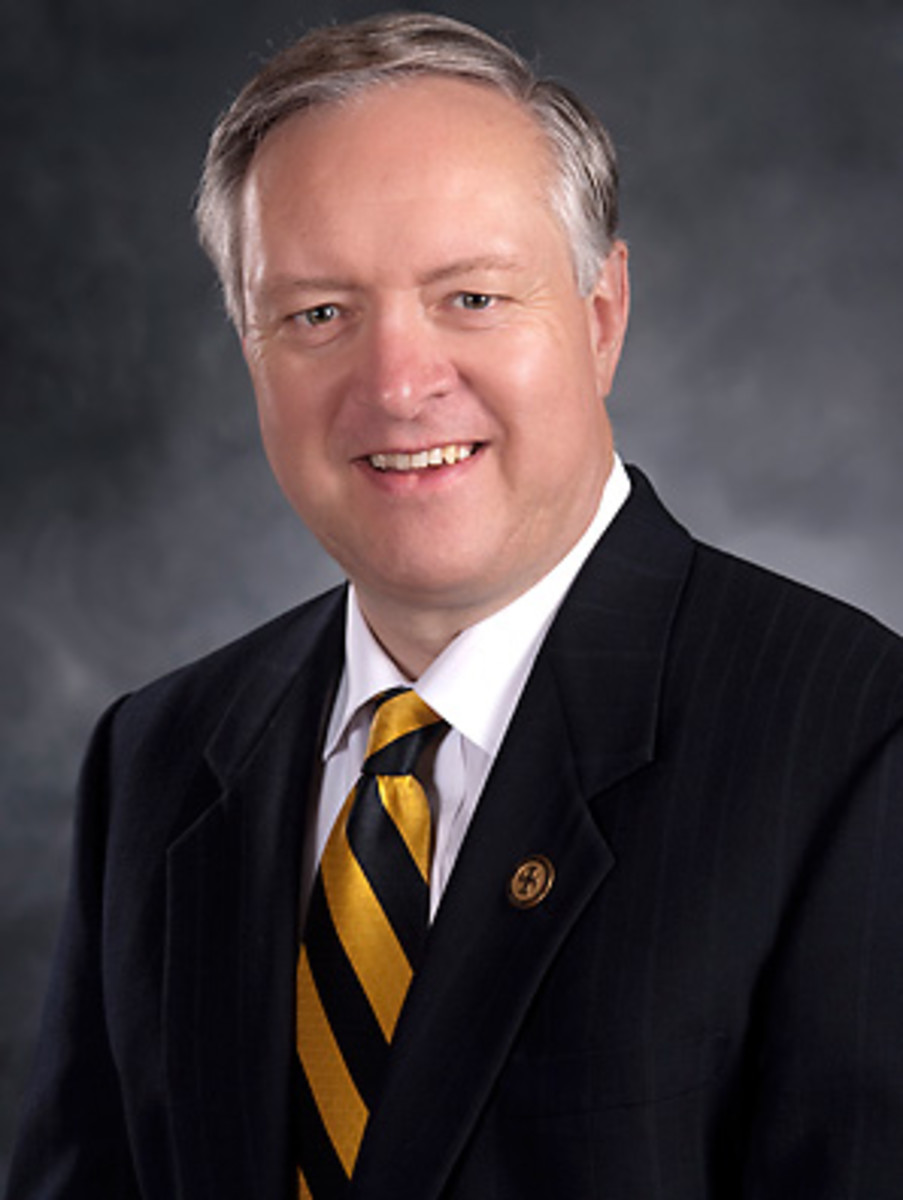Q&A with Idaho president Duane Nellis


Idaho president Duane Nellis is a member of the BCS Presidential Oversight Committee. Prior to taking over at Idaho in 2009, Nellis served as provost at Kansas State.
SI: How do you feel about the college football postseason?
Nellis: As president, I'm not in favor of a season that gets extended for a long period of time. I would probably be in favor of some type of plus-one model like the one that's being discussed right now. But I would hope that the additional revenue that would be generated from that would be distributed to all the FBS schools and would be a benefit to all of them.
SI: Is revenue-sharing going to be a major bone of contention?
Nellis: I'm sure there will be discussion about that. Again, it's kind of the haves versus the have-nots. One of the things I've liked about the NCAA basketball tournament is that there is a broader benefit to the entire group of NCAA schools that participate. The BCS process, there is much more limited revenue distribution.
SI: Do you think the power conferences would go for equal distribution?
Nellis: It's kind of hard to tell. Generally, I think probably not. The way the BCS oversight committee is structured, the mid-majors have fewer representatives, fewer votes. I would guess that would be the determining factor in the way it gets distributed. But there are a lot of dynamics going on right now with all the conference restructuring. It's kind of hard to tell where people are going to be at on that particular issue.
SI: How have the races for TV contracts affected conference realignment?
Nellis: It's very frustrating to me. The TV revenue driving the restructuring of a lot of our major conferences has, I think, destroyed a lot of the academic and sports rivalries that we've had over the years. I was at Kansas State before coming here. We had played Nebraska for over 100 years in football. That's gone now. The Border Wars between Missouri and Kansas in basketball. That's gone now. For us mid-majors, it's drained away some of the teams that have been a part of our conferences. It really does create this sense of the haves versus the have-nots. It kind of undermines what I feel should be the philosophy of the NCAA and the BCS in the whole area of what's best for the student-athlete. ... We gradually are moving away from it because of some of these TV contracts.
SI: Some people want to get rid of the AQ status. How do you feel about it?
Nellis: I would be interested over time in us moving away from that to a new model. Pick the highest ranked teams to participate, much like we try to do in the NCAA basketball tournament. To look at what's best rather than having automatic qualifiers from certain conferences, really open it up and get the best teams playing in the process.
SI: Would you want the NCAA to administer the playoff?
Nellis: This is not a representation of my BCS role. This is me speaking as the president of the University of Idaho. My personal feeling is the NCAA basketball tournament is run very well by the NCAA. Having their oversight and fairness administered in that process would be a good thing.
SI: Where did you fall on multiyear scholarships?
Nellis: We feel like it has potential for institutions to get into a bidding war for perspective student-athletes. We see no need for this legislation, because our philosophy is to renew student athletic scholarships as long as they maintain their academic eligibility and haven't been involved in any behavior-related issues. So this takes away from the current equity that we think exists among scholarships. Right now, a scholarship at the University of Idaho is the same as a scholarship at a BCS school. So institutions will be competing for recruits by making the best deal. We think that's not healthy for college athletics.
SI: How do you feel about cost-of-attendance stipends?
Nellis: Again, this takes away from the current equity that exists for scholarships. A scholarship at the University of Idaho again has the same value as at a BCS school. We're all for enhancing the welfare of our student-athletes, but this will create a significant inequity in the system. We believe that this violates the philosophy of the NCAA not to pay for play. It creates a significant advantage for the BCS conferences who have much more access to television revenue.
SI: Will the revenue disparity cause a schism in the FBS?
Nellis: It's certainly making it a much more difficult competitive environment, but every year mid-majors compete, I think, very favorably with BCS schools. We lost in overtime to the University of Virginia in Charlottesville this year in football, and they went on to win [five of six] after that. Utah State from our conference had Auburn on their heels on the road right up until the end. The BCS likes to have our schools as part of their preseason, and we like playing them. But this issue of equity, we think it's going to be very detrimental long-term.
SI: What would you like to see happen to the postseason?
Nellis: What I would prefer is some kind of a plus-one system with the major bowls assigned not because of conference affiliation but by some sort of rating system sort of like we have in the BCS now.
